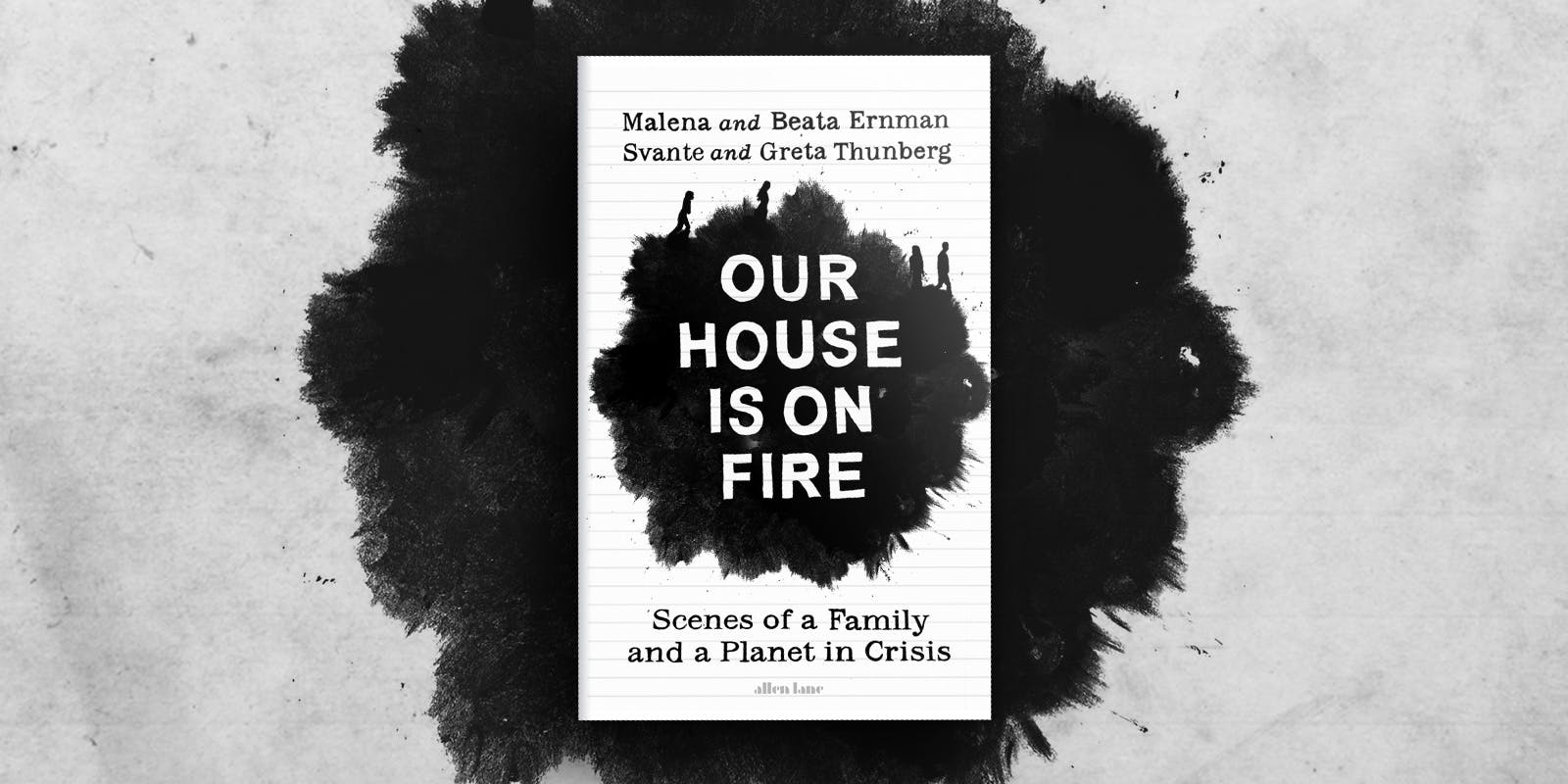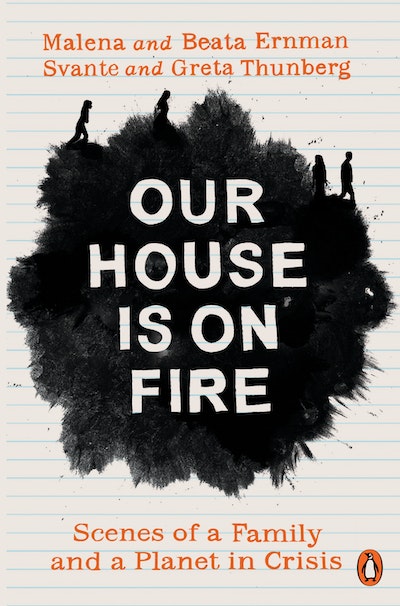Greta Thunberg’s unique perspective allowed her to reject the contradictions of modern life.
Confronted with an eleven-year-old child who was refusing to eat and speak, parents Malena Ernman and Svante Thunberg were thrust into a world of psychiatrists, specialists, medical centres and endless meetings. In their own words they were ‘fumbling in the dark’ – desperate to get to the bottom of their daughter Greta’s rapidly deteriorating physical and mental health. Greta was unable to attend school, had lost ten kilograms and was on the brink of hospitalisation when she made the decision to eat once again.
Greta’s subsequent diagnosis with Asperger’s syndrome, high-functioning autism and obsessive-compulsive disorder (OCD) gave her parents medical references from which they could start mapping out a long road back to normal family life. But while doing so, they slowly became aware of the primary source of Greta’s distress: her imperilled future on a rapidly heating planet.
Our House Is on Fire is the story of the Ernman–Thunberg family confronting a crisis they had never foreseen. It’s the story of a family opening their eyes to the suffering our planet and its people. It’s the story of standing strong in the face of powerful opposition, embracing our differences as strengths, and finding the resolve to bring about monumental change. In the passage below, Greta Thunberg’s parents describe a moment they realised just one of her manifold talents.
What happened to our daughter can’t be explained simply by a medical acronym or dismissed as ‘otherness’. In the end she simply couldn’t reconcile the contradictions of modern life.
We, who live in an age of historic abundance, who have access to shared resources far beyond all imagination, can’t afford to help vulnerable people in flight from war and terror – people like you and me, but who have lost everything.
In school one day, Greta’s class watches a film about how much rubbish there is in the oceans. An island of plastic, larger than Mexico, is floating around in the South Pacific. Greta cries throughout the film. Her classmates are also clearly moved. Before the lesson is over the teacher announces that on Monday there will be a substitute teaching the class, because she’s going to a wedding over the weekend, in Connecticut, right outside of New York.
‘Wow, lucky you,’ the pupils say.
Out in the corridor the trash island off the coast of Chile is already forgotten. New iPhones are taken out of fur-trimmed down jackets, and everyone who has been to New York talks about how great it is, with all those shops, and Barcelona has amazing shopping too, and in Thailand everything is so cheap, and someone is going with her mother to Vietnam over the Easter break, and Greta can’t reconcile any of this with any of what she has just seen.
There are hamburgers for lunch, but she can’t eat.
It’s hot and crowded in the school cafeteria. The noise is almost ear-splitting and suddenly that greasy chunk of meat on the plate is no longer a piece of food. It’s a ground‑up muscle from a living being with feelings, awareness and a soul. The trash island has imprinted itself on her retinas.
She starts crying and wants to go home, but going home isn’t an option because here in the school cafeteria you have to eat dead animals and talk about fashion, celebrities, make‑up and mobile phones.
You’re supposed to take a plate full of food, say that it’s gross and poke at it just enough before tossing it all in the bin – without signalling either autism or anorexia or anything else difficult.
Greta has a diagnosis, but it doesn’t rule out that she’s right and the rest of us have got it all wrong.
Because however much she tried she could not work out that equation that all the rest of us had already solved, the equation that was the ticket to a functioning everyday life.
She saw what the rest of us did not want to see.
Greta belonged to the tiny minority who felt that they could see our CO2 emissions with their naked eye. The invisible, colourless, scentless, soundless abyss that our generation has chosen to ignore. She saw all of it – not literally of course, but nonetheless she saw the greenhouse gases streaming out of our chimneys, wafting upwards with the winds and transforming the atmosphere into a gigantic, invisible garbage dump.
She was the child, we were the emperor.
And we were all naked.













